Black’s Law Dictionary 2nd Edition, pages 1098-1099:
SOVEREIGN. A chief ruler with supreme power; a king or other ruler with limited power.
In English law. A gold coin of Great Britain, of the value of a pound sterling.
-Sovereign people. A term familiarly used to describe the political body, consisting of the entire number of citizens and qualified electors, who, in their collegiate capacity, possess the powers of sovereignty and exercise them through their chosen representatives. See Scott v. Sanford, 19 How. 404, 15 L. Ed. 691.
-Sovereign power. That power in a state to which none other is superior or equal, and which are necessary to accomplish the legitimate ends and purposes of government. See Boggs. v. Merced Min. Co., 14 Cal. 309: Donnelly v. Decker,58 Wis. 461, 17 N. W. 389, 46 Am. Rep. 637; Com. v. Alger, 7 Cush. (Mass.) 81.
-Sovereign right. a right which the state alone, or some of its government agencies, can possess, and which it possesses in the character of a sovereign, for the common benefit, and to enable it to carry out its proper function; distinguished from such “proprietary” rights as state, like any private person, may have in property or demands which it owns. See st. Paul v. Chicago, etc., R. Co., 45 Minn. 387, 48 N. W. 17.
– Sovereign states. States whose subjects or citizens are in the habit of obedience to them, and which are not themselves subject to any other (or paramount) state in any respect. The state is said to be semi-sovereign only, and not sovereign, when in any respect or respects it is liable to be controlled (like certain of the states in India) by a paramount government, (e.g., by the British empire.)Brown. “In the intercourse of nations, certain states have a position of entire independence of others, and can perform all those acts which is possible for any state for perform in this particular sphere. These same states have also entire power of self-government; that is, of independence upon all other states as far as their own territory and citizens not living abroad are concerned. No foreign power or law can have control except by convention. This power of independence action in external and internal relations constitutes complete sovereignty.” Wools. Pol. Science, I. 204.
“People of a state are entitled to all rights, which formerly belong to the King by his prerogative.” Lansing v Smith, (1829) 4 Wendell 9,20 (NY).
“governments are but trustees acting under derived authority and have no power to delegate what is not delegated to them. But the people, as the original fountain might take away what they have delegated and entrust to whom they please. .. The sovereignty in every state resides in the people of the state and they may alter and change their form of government at their own pleasure.” Luther v. Borden, 48 US 1. 12 L.Ed. 581.
“The words “people of the United States” and “citizens” are synonymous terms and mean the same thing. They both describe the political body who, according to our republic institutions form the sovereignty, and who hold the power, and conduct the government through their representatives. They are what we familiarly call the sovereign people, and every citizen is one of this people, and a constituent member of the sovereignty.” Dredd Scott v Sandford 60 U.S 39911
“The sovereignty of a state does not reside in the persons who fill the different departments of its government, but in the People, from whom the government emanated; and they may change it at their discretion. Sovereignty, then in this
country, abides with the constituency, and not with the agent; and this remark is true, both inreference to the federal and state government.” Spooner v. McConnell, 22 F 939 @ 943
“The people or sovereign are not bound by general word in statutes, restrictive of prerogative right, title or interest, unless expressly named. Acts of limitation do not bind the King or the people. The people have been ceded all the rights of the King, the former sovereign,….” People v Herkimer, 4 Cowen (NY) 345, 348 (1825)
“The sovereign people through their representatives have created the Court and the Board, as well as the municipal council and have defined the rights and duties of each.” Re Casa Loma, (1927) 4 D.L.R. 645
“the powers of government in this country are derived from the people who are the ultimate sovereign.” Ridgeway v The Queen, 69 Australian Reports 484
“People of a state are entitled to all rights, which formerly belong to the King by his prerogative.” Lansing v Smith, (1829) 4 Wendell 9,20 (NY).
“It will be admitted on all hands that with the exception of the powers granted to the states and the federal government, through the Constitutions, the people of the several states are unconditionally sovereign within their respective states.” Ohio L. Ins. & T. Co. v. Debolt, 16 How. 416, 14 L.Ed. 997.
“Sovereignty itself is, of course, not subject to law, for it is the author and source of law; …..” Yick Wo v Hopkins, 118 US 356, at pg 370;
Inasmuch as every government is an artificial person, an abstraction, and a creature of the mind only, a government can interface only with other artificial persons. The imaginary, having neither actuality nor substance, is foreclosed from creating and attaining parity with the tangible. The legal manifestation of this is that no government, as well as any law, agency, aspect, court, etc. can concern itself with anything other than corporate, artificial persons and the contracts between them.
Penhallow v. Doane’s Administraters 3 U.S. 54; 1 L.Ed. 57; 3 Dall. 54, (1795)
“. . . The Congress cannot revoke the Sovereign power of the people to override itself as thus declared.” See: Perry v. United States, 294 U.S. 330, 353 (1935).
“In the United States, Sovereignty resides in the people, who act through the organs established by the Constitution.” See: Chisholm v. Georgia, 2 Dall 419, 471; Penhallow v. Doane’s Administrators, 3 Dall 54, 93; McCullock v. Maryland, 4 Wheat 316, 404, 405; Yick Wo v. Hopkins, 118 U.S. 356, 370 (1886).
“The very meaning of ‘sovereignty’ is that the decree of the sovereign makes law.” American Banana Co. v. United Fruit Co., 29 S.Ct. 511, 513, 213 U.S. 347, 53 L.Ed. 826, 19 Ann.Cas. 1047.
“and because it brings into action, and enforces this great and glorious principle, that the people are the sovereign of this country, and consequently that fellow citizens and joint sovereigns cannot be degraded by appearing with each other in their own courts to have their controversiesdetermined.“ Chisolm v Georgia 2 Dall. 440
“…at the Revolution, the sovereignty devolved on the people, and they are truly the sovereigns of the country, but they are sovereigns without subjects, and have none to govern but themselves; the citizens of America are equal as fellow citizens, and as joint tenants in the sovereignty.” Chisholm v. Georgia, 2 U.S. 419 (1793)



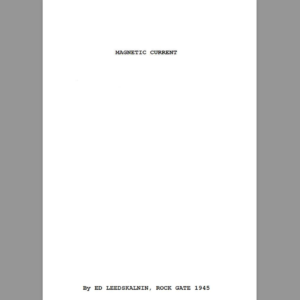
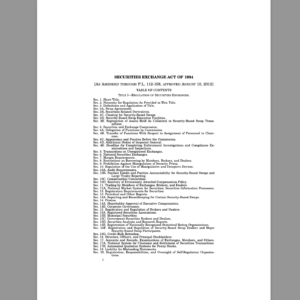
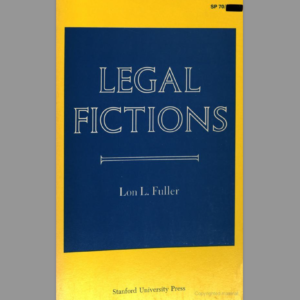
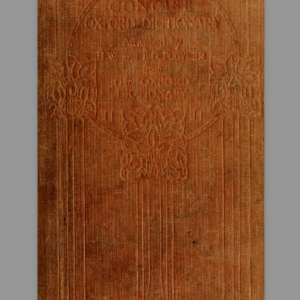
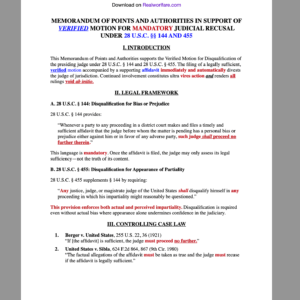
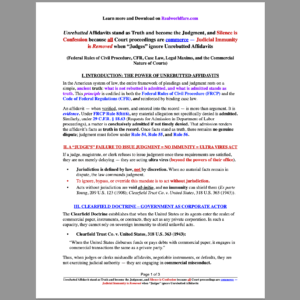



Recent Comments